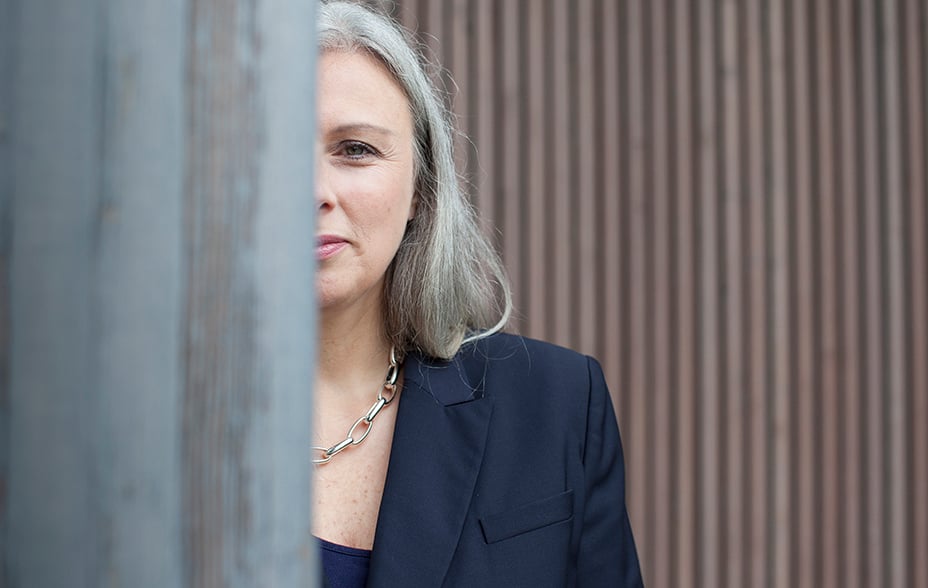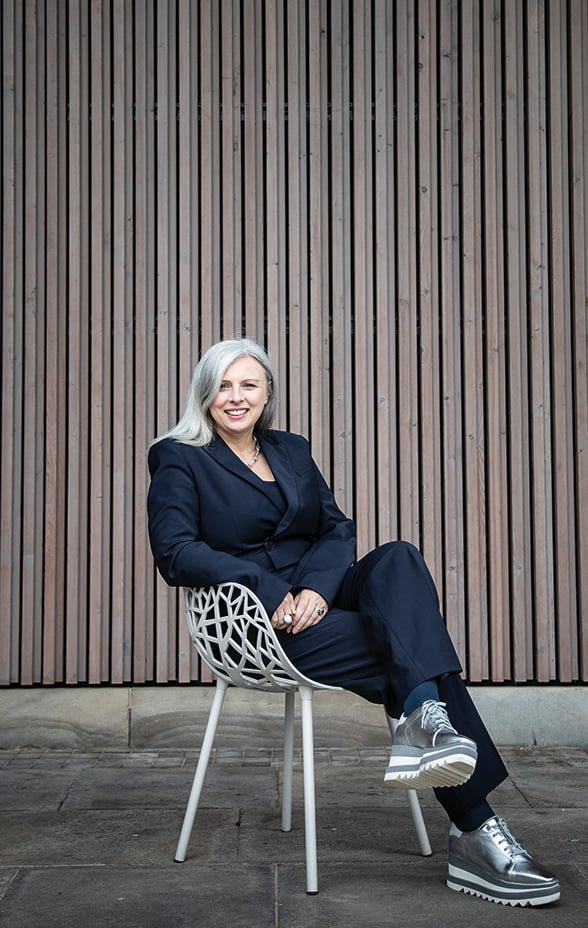Key points
The definition of what makes you who you are was once a simple matter. But as Tracey Follows explains to Pádraig Belton, big tech has encroached on our personal space.

When Tracey Follows last checked her Facebook account, she didn’t recognise any of her friends.
And it wasn’t because they’d changed over lockdown. Everyone looked like they were having a lovely time, she notes. It was just that she’d never met any of them in her life. Her account, it transpired, had been hacked. And when she submitted her passport to Facebook, an algorithm informed her she wasn’t her.
"A passport is a state-supplied official document, yet a social media network basically rejected it. Hang on a minute," she asks, "who's got the most power and influence here?".
In the old days, states and banks used to have the identity business sewn up between them. If you needed to prove who you were, you’d marshal a pyramid of passports, driving licences, birth certificates, and account statements, and bingo, you had identified yourself.
Less so now. A Silicon Valley algorithm might reject your passport, and with most of our lives online, it could be a thornier problem than being turned away at the off-licence.
So, who owns your identity? Is it you, your government, your bank, or the tech companies that have given us new abilities to explore and shape who we are? We allow them an increasingly detailed picture of when we get up in the morning, who our friends are, and where we are at any minute or any given day? In The Future of You: Can Your Identity Survive 21st-Century Technology, Follows argues that it should be – must be – you.
Follows is CEO of Futuremade, which specialises in helping businesses plan for the future, and has advised companies such as Google’s parent company Alphabet and the online luxury apparel company Farfetch. Her book is timely, as identity is about to change even more. The UN's Sustainable Development Goals, adopted in 2015, set out that everyone on the planet should have a legal identity by 2030. Some 1.7 billion people, one in five people alive – many in Africa and a disproportionate number of them women – can’t access bank accounts, mortgages, or investments to better their lives.
Most of the world's citizens are moving towards a digital identity system of some form, or a confused bundle of them. In the UK, which just announced a new voter ID scheme in May 2021, identity remains federated, split among multiple identity-management systems. There’s no single document. Instead you must take along some from your bank, others from the government, which together provide a credible picture of you. Other countries, meanwhile, are following the lead of India, where a single 12-digit number is backed up biometrically by fingerprints and iris scans.
Covid-19 is creating new forms of identity, around health. Your coronavirus passport could control where you can eat, where you can go. So might this become a way for governments and commercial companies to scrutinise who you're with and when, then digitally give you access to places? Some of this feels sinister to Follows. In China you can already view the ‘green’, ‘yellow’, or ‘red’ coronavirus status of your neighbours.
Social media platforms are addressing public concerns about data security by improving privacy settings to make it easier for users to restrict their personal information which is in the public domain. The EU’s General Data Protection Regulation (GDPR) has played a part in encouraging companies to change their ways and has given individuals more power over how their data is being stored and used. For example, it has forced firms to ask users for explicit consent to use their personal data to receive marketing. But Follows argues social media platforms should do more to fashion a solution. Why not have a digital sovereign identity you control, living on the blockchain, she suggests, where you control who accesses it, and they only take away as much information as they need. There’s no good reason the person behind the off-license counter needs to know where you live.
Meanwhile, what surprised Follows most in writing the book, was how advanced work has become on brain-machine interfaces. And if you could download a language or music straight into your brain, which she believes will "come along by 2040, maybe a lot sooner than that," you'll sit up and read the terms and conditions more carefully.
Rod Ponton, the cat-avatar lawyer of YouTube fame, who in February 2021 had solemnly to tell a sitting US judge "I'm not a cat," illustrates the increasing slippage between the digital and real worlds, argues Follows. "On one level, we're all laughing," she says, but "take on an avatar, a different persona, and it makes you conduct yourself in different ways". Could we not then simply become a suite of fragmented identities?
So perhaps legally owning and controlling your identity should include all your avatars, sims, and pseudonyms too – the electronic persona as much as the biological version which will increasingly reflect the future of you.


The Future of You: Can Your Identity Survive 21st-Century Technology? is published by Elliott & Thompson (hardback: £14.99).
Ref: 11374 10003608



